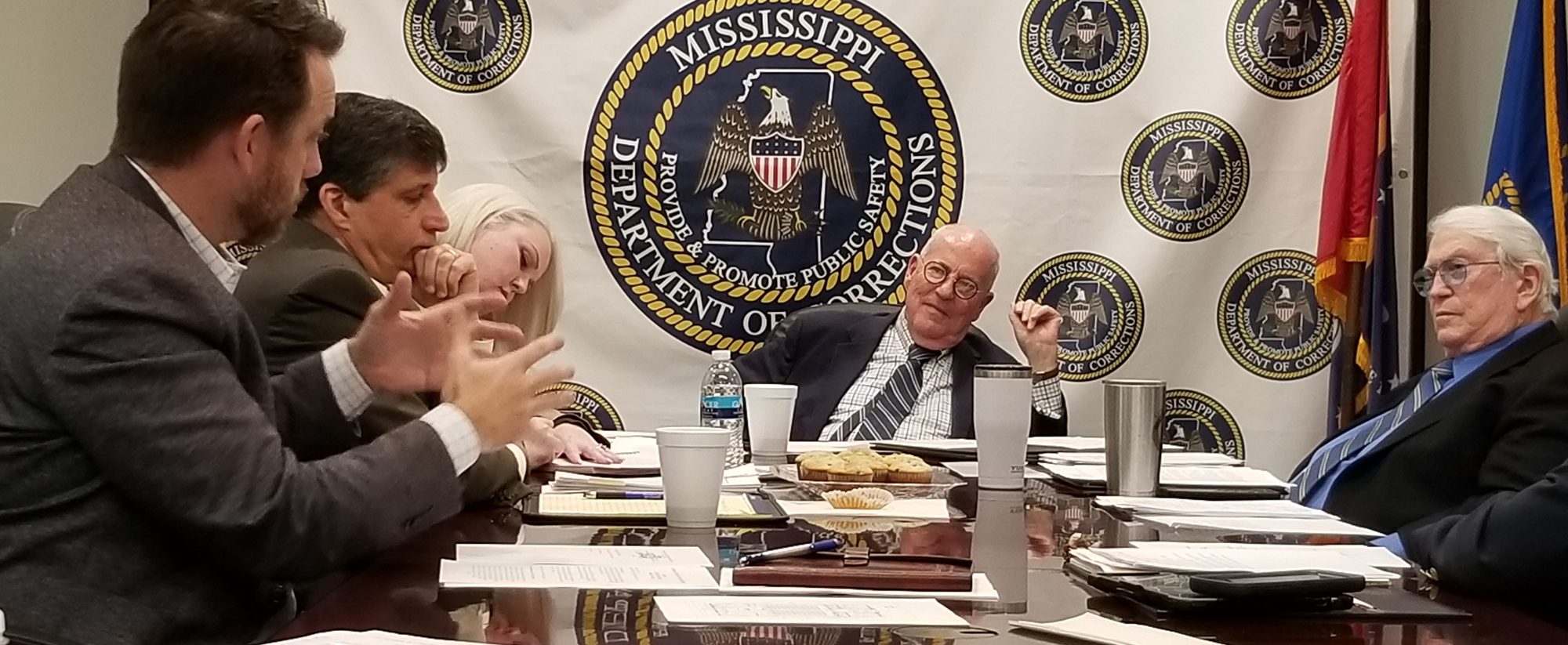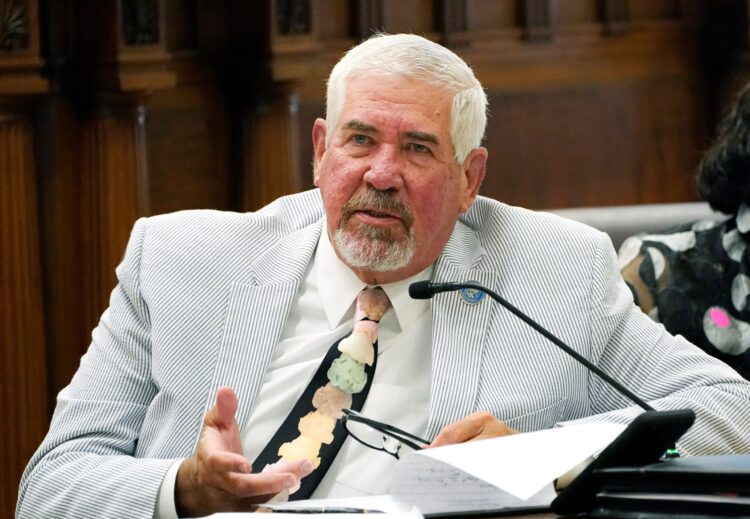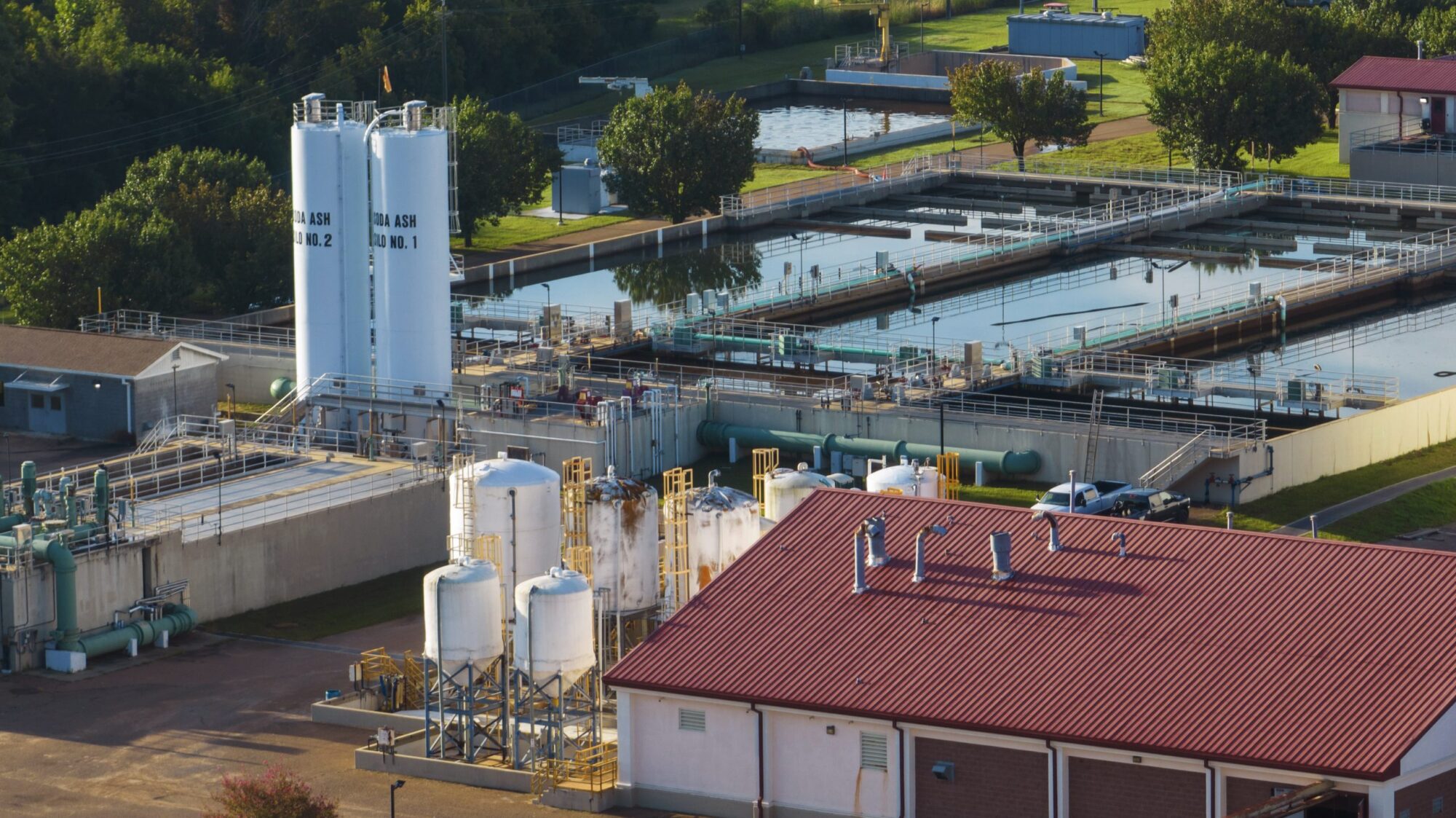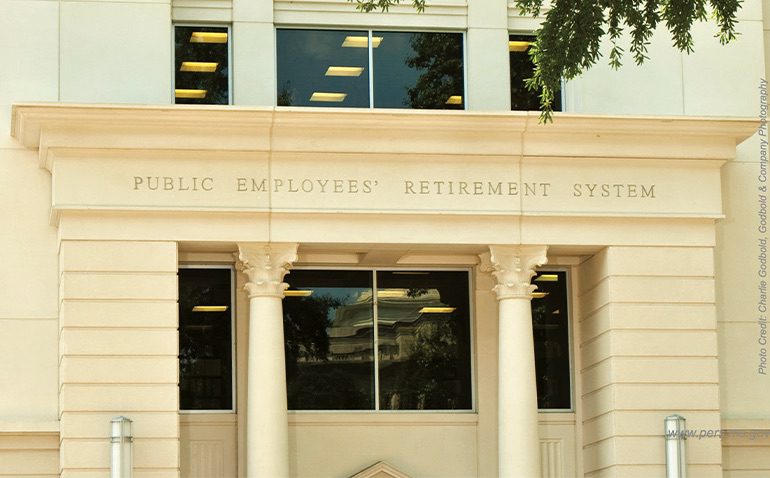
Photo from Mississippi Department of Corrections' Facebook page.
Mississippi House, Senate Corrections Chairmen say they are letting past legislative reforms work before taking additional action.
In January, the Corrections and Criminal Justice Oversight Task Force released its 2022 Final Report where they made recommendations for the 2023 Legislature. The task force released the following recommendations:
- The Legislature should fund a data system upgrade for MDOC.
- The Legislature should expand the pilot work-release program authorized by S.B. 2437, 2022 Regular Session, by removing the location and participation limits.
- The Legislature should pass legislation to address housing and substance use disorder issues facing returning persons through transitional (reentry/recovery) housing.
André de Gruy, the State Public Defender for Mississippi and the longest serving member of the current task force, said that while the data upgrade and housing initiative would be in the Mississippi Department of Corrections’ (MDOC) appropriation bill, he doesn’t believe any legislation was introduced to expand the work-release project.
Last month, the Mississippi Director for Right on Crime Scott Peyton wrote an op-ed for the Magnolia Tribune and said that while the Task Force’s 2022 Final Report notes that numerous recommendations from the Task Force’s inception were passed into law, not all have been fully implemented to help address the demands of this rise in our prison population.
“Like the Task Force’s recommendations for reforming probation and parole, the 2022 report confirms many past recommendations have only been partially implemented, and there are many findings in the report that, like a broken resolution, require more than promises,” Peyton said. “It’s time to implement what the legislature has passed and follow the recommendations of the Task Force. Mississippi must address the root causes of crime while reducing our prison population, addressing recidivism, and keeping our communities safe.”
The State Public Defender said he thinks Peyton is “spot on.”
“He’s particularly right about the failure of the legislature to make ‘Justice Re-Investment.’ Putting the savings we realized from reducing the prison population into reentry programs,” de Gruy said. “MDOC has greatly improved job skill training, but reentry housing is really an area that is critical, and we just haven’t done anything there.”
State Senator Juan Barnett (D), Chairman of the Senate Corrections Committee, said he would like to beg to differ. He explained that the Legislature has passed several bills pertaining to the recommendations, especially in regard to workforce, and lawmakers are making sure that those programs are happening.
“If you’ve noticed this legislative session, we didn’t do anything in Corrections and that’s because we want to give the things we’ve already done an opportunity to grow versus keep compounding stuff and compounding stuff and never give anything the opportunity to grow like as planned,” Barnett said. “And that’s what we’re doing this year, we just took a year off of passing anything to make sure what we’re doing is growing so that we can come back next year with proven data, proven facts, and say hey this is what why need to keep expanding what we’re doing, it’s working.”
State Representative Kevin Horan (R), Chairman of the House Corrections Committee, agreed with Barnett. He said lawmakers are trying to get some data in so they can figure out what’s working and what’s not working.
Representative Horan told Magnolia Tribune that they are not doing anything this year to implement the task force’s recommendations.
“Some of the recommendations, historically, you know from a financial standpoint, some of them can’t, I mean, you have to kind of look at that,” Horan said. “And also, whether or not, you know, there’s legislation that can be implemented or put together that can pass both chambers and whether or not the Governor will be on board with the signing off. So, all those factors come into play.”
He anticipates that lawmakers will hold hearings on the recommendations out of session later this year, bringing in stakeholders to present and discuss next steps. Horan added that he has spoken with Senator Barnett about having joint committee meetings between the House and the Senate to go over the recommendations.
“That’s kind of our plan since the repealer on the reform bill comes up next year,” Horan said. “We’ll probably going to get that done next year.”
Representative Horan agreed with Senator Barnett by saying that they want to make sure current programs are functioning properly before considering other changes.
Vice-Chairman of the Senate Corrections Committee, Senator Daniel Sparks (R), also spoke with Magnolia Tribune about the recommendations.
Regarding the data system upgrade, Senator Sparks said if that’s the problem, then “bring us a proposal.” He said the Department of Corrections needs to tell the Legislature what is failing, what is needed, and provide a cost estimate.
“My biggest issue right now, we have a $23 million deficit request from MDOC and they’re entering into a long-term contract with the healthcare provider, which is at a $6 per head increase,” Sparks said.
Sparks said the problem with expanding the work-release program is you have to have partners. He added that lawmakers are fine with expanding those as long as safety is paramount. Possibly implementing that option in regional or county jails could be considered but Sparks said there have been Sheriffs who have expressed opposition to it.
“I’m all for expanding that program, but I want to make sure that we have partners that are willing to do it and do it in a way that benefits everybody, including the inmates,” Sparks said.
Regarding the housing, Senator Sparks said this is the area he is most disappointed in because he doesn’t have any reliable information of what resources exist that are considered transitional housing.
“My intention, once I was appointed to this committee, and Senator Barnett and I were doing this when COVID struck, we had been to all four state facilities as well as starting to travel to the private managed facilities, and then were going to go to the fifteen regionals,” Sparks said. “I intend to take that project back up this spring, but because of COVID for a year and a half, we could not get inside of the facilities.”
Sparks said he appreciates the work the task force is doing and continues to do.
“But the items that are in there, we would agree on most of those items,” Sparks said. “It’s just what does the implementation look like, what does the reality look like, and what is the cost for a department that’s already hovering at almost $400 million?”
The 2022 Final Report explains that since the passage of H.B. 585, during its 2014 Regular Session, the Legislature has passed several pieces of legislation that address recommendations made by the Task Force, including:
- In 2018, the Legislature passed H.B. 387, which ended “debtor’s prisons” for failure to pay fines and clarified that people sentenced with enhancements prior to July 1, 2014, were eligible for parole. The bill also provided discretion to judges to deviate from the mandatory minimum sentences for non-violent habitual convictions. Furthermore, the bill created the Mississippi Sentencing Disparity Task Force for the purpose of studying and reporting on possible disparity in sentencing in order to promote the interest of uniform justice throughout Mississippi.
- During its 2019 Regular Session, the Legislature enacted H.B. 1352, known as the Criminal Justice Reform Act. The bill’s primary focus was to rename drug courts, mental health courts, and veterans courts as “intervention courts,” to be under the oversight of the Administrative Office of Courts. Additionally, H.B. 1352 made some technical changes to the administration of intervention courts, such as requiring better data collection, and reconstituted the Drug Court Commission into the Intervention Court Advisory Commission.
- During the 2020 Regular Session, the Legislature passed H.B. 851, which added two additional members to the Task Force an advocate for offenders and families who have been directly affected by the prison justice system, who is to be appointed by the Governor, and a member to be appointed by the Mississippi Association of Chiefs of Police.
- During the 2021 Regular Session, the Legislature passed S.B. 2795, which expanded parole eligibility for certain violent crimes. Approximately 6,300 offenders either gained a parole eligibility date or received a reduced eligibility date under the new statute.
- During the 2021 Regular Session, the Legislature passed H.B. 747, which authorized the Rankin County Sheriff’s Department to create a pilot work release program to help qualified inmates learn skills and make employment connections before release. In the 2022 Regular Session, the Legislature passed H.B. 586, which authorized Harrison and Lee counties to develop similar pilot work release programs.
- The 2022 Legislature passed SB 2437 establishing a pilot work-release program within MDOC. This new program is limited to operating from CMCF and limited to 25 participants.
You can read the full report below.











